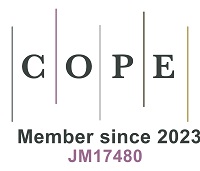
Topic: Linking Climate Change Perception, Behavioral Shifts, and Carbon Footprint Reduction
Guest Editors
Special Issue Introduction
Climate change mitigation hinges not only on raising awareness but also on understanding how and why specific behavioral shifts translate into measurable reductions in carbon footprints. While perceptions of climate risks and responsibilities are foundational, the efficacy of actions—from individual lifestyle changes to collective policy compliance—remains understudied in terms of scalability, equity, and long-term impact. This special issue focuses on bridging the perception-behavior gap through rigorous evaluation of behavioral interventions and their tangible effects on carbon emissions.
Behavioral shifts, such as adopting renewable energy, reducing meat consumption, or prioritizing public transport, vary widely in their carbon footprint implications. However, the effectiveness of these actions is often mediated by contextual factors, including socio-economic constraints, cultural norms, and policy incentives. This issue calls for research that quantifies the carbon reduction potential of specific behaviors, evaluates the durability of behavior change, and identifies leverage points for systemic amplification.
Submissions may explore innovative tools (e.g., AI-driven footprint trackers and carbon labels), policy experiments (e.g., carbon pricing and behavioral intervention), or cross-cultural comparisons of behavior-change efficacy. Interdisciplinary approaches integrating environmental science, behavioral economics, and data analytics are particularly encouraged. By prioritizing impact evaluation, this special issue aims to move beyond theoretical discussions of climate awareness and provide evidence-based pathways for achieving net-zero goals. We welcome case studies and research from both the Global North and South, exploring how people in different development contexts address these challenges. We are particularly interested in examining the roles and contributions of diverse stakeholders—including decision-makers, industry, business leaders, and civil society—in fostering sustainable behaviors and advancing climate action.
Keywords
Climate change perception; Risk communication; Low-carbon behavior; Carbon footprint reduction; Environmental psychology; Climate change communication; Behavior change; Social norms; Policy interventions; Public engagement; Sustainable consumption; Policy impact analysis
Submission Deadline
Submission Information
For Author Instructions, please refer to https://www.oaepublish.com/cf/author_instructions
For Online Submission, please login at https://www.oaecenter.com/login?JournalId=cf&IssueId=cf25060510109
Submission Deadline: 15 Nov 2025
Contacts: Leah Zhang, Assistant Editor, [email protected]








